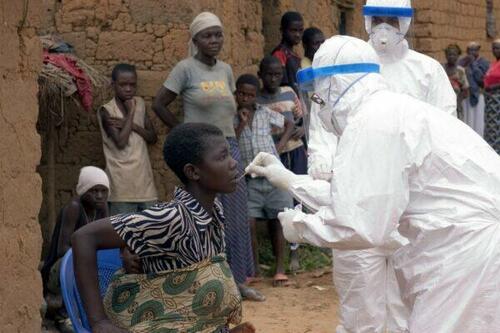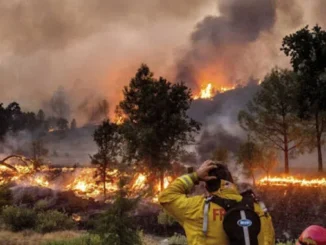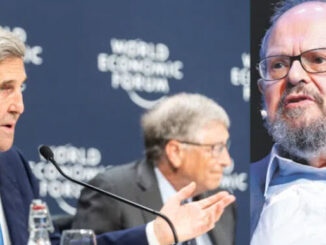
Authored by Jack Phillips via The Epoch Times (emphasis ours),
The World Health Organization (WHO) convened an “urgent meeting” this week amid an outbreak of the Marburg virus, which causes one of the world’s deadliest diseases, in Africa.
A hazmat worker is seen in a file photo. (LM Otero/AP Photo)
Health officials say Marburg, first seen in the late 1960s, is related to Ebola. However, WHO officials say it’s far more deadly, killing upwards of 88 percent of people who contract it.
The virus has been detected in several African countries over the past several months, including recently in Equatorial Guinea. A small number of Marburg cases were found in Ghana late last year.
“WHO on Tuesday convened an urgent meeting of the Marburg virus vaccine consortium (MARVAC) to discuss the outbreak,” a news release from the United Nations-backed health agency said on Tuesday, adding that Equatorial Guinea has confirmed its first-ever case of the virus. WHO officials say the virus is responsible for nine deaths in the tiny African nation.
The Marburg outbreak was centered around Kie Ntem Province, located in western Equatorial Guinea. The deaths occurred between Jan. 7 and Feb. 7, WHO said, citing reports.
“Surveillance in the field has been intensified,” George Ameh, WHO’s country representative in Equatorial Guinea, was quoted as saying by the Daily Mail during Tuesday’s meeting. “Contact tracing, as you know, is a cornerstone of the response. We have … redeployed the COVID-19 teams that were there for contact tracing and quickly retrofitted them to really help us out.”
In its release, WHO said it sent “advance teams” to impacted districts in the West African country to provide medical care and perform contract tracing. “Health authorities sent samples to the Institut Pasteur reference laboratory in Senegal, with support from WHO, to determine the cause,” Tuesday’s release added. “Eight samples were tested, one of which turned out positive.”
Cases of the virus, however, are considered rare. Annual global figures released by WHO indicate that cases tend to be in the single digits worldwide.
And although it remains “a very rare disease in people,” says the U.S. Centers for Disease Control and Prevention, “when it occurs, it has the potential to spread,” and can be highly deadly. “Health care staff and family members who care for the patient” infected with the hemorrhagic fever are most at risk, the CDC says (pdf) in a fact sheet.
Read more here…
Loading…



